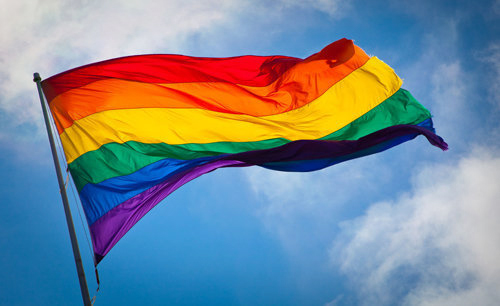
Remarkably, there are only 16 states that currently have workplace non-discrimination laws that are fully inclusive of LGBT people. This leaves LGBT people vulnerable to workplace discrimination in well over half of the country–an unacceptable situation that must be changed.
To address this, last week, the Employment Non-Discrimination Act in Congress. The legislation would prohibit employment discrimination based on sexual orientation and gender identity in most American workplaces, a critically important step towards full equality for LGBT people.
Of all the various bills in Congress impacting LGBT people, ENDA is the most important. In reintroducing the legislation, ENDA's congressional sponsors made a number of significant improvements to the new version of the bill. For instance, they deleted a provision from previous years that would have reaffirmed the discriminatory and unconstitutional Defense of Marriage Act (DOMA).
And though significant and important changes were made, one really bad provision was unchanged from past versions of the bill. It still has an unprecedented and overly broad exemption for religiously affiliated employers. You may be asking, "Is this really such a big deal?" The ACLU firmly believes that it is.
Title VII of the landmark 1964 Civil Rights Act grants churches, synagogues, and mosques, as well as some religiously affiliated organizations an exemption from the law's prohibition on religious hiring discrimination–meaning they can prefer members of their own faith in hiring. The purpose of this exemption is to permit a religious organization to require those who carry out its work to share its faith (and it has subsequently been interpreted to apply even when an employee's work is not itself religious). But, it is not a blank check for these organizations to discriminate for any reason. It does not, for example, permit discrimination on the basis of race or sex.
As it stands, ENDA's religious exemption could provide those same religiously affiliated organizations–again, not just houses of worship–with a blank check to engage in employment discrimination against LGBT people. It could allow, for example, a religiously affiliated hospital to fire a transgender doctor or a religiously affiliated university to terminate a gay groundskeeper. Beyond allowing greater discrimination, ENDA's religious exemption also gives a stamp of legitimacy to LGBT discrimination that our civil rights laws have never given to discrimination based on an individual's race, sex, national origin, age, or disability.
As LGBT people gain greater equality under the law–at the local, state, and, yes, federal level– are increasingly arguing that their religious beliefs need to be accommodated in the form of special rights to discriminate because they are now the of LGBT equality.
Religious liberty is very important and guarantees us the freedom to hold any belief we choose and the right to act on our religious beliefs–but it does not allow us to harm or discriminate against others. Religious liberty, contrary to what opponents of equality argue, is not a license to use religion to discriminate.
These kinds of . In both 1964 and 1972, there were attempts to create a blanket exemption in the civil rights law for religious organizations to allow them to discriminate in hiring on the basis of not only religion, but also race, sex, and national origin. Yet, both times, Congress limited the exemption provided to these organizations was to an ability to prefer members of their own faith, and rejected kind of blank check to discriminate that ENDA would give these organizations with respect to sexual orientation and gender identity in 2013.
The LGBT community and those who advocate for LGBT people must not allow this. Now is the time to draw a line in the sand and make clear that blank checks to discriminate are incompatible with basic fairness and equality under the law for LGBT people. We remain hopeful that our allies in Congress will agree that singling out LGBT people alone for this kind of unequal and unfair exemption to otherwise applicable non-discrimination laws has no place in this historic, long-overdue legislation.
The authors are, respectively, legislative representative on issues related to LGBT rights and legislative counsel on issues related to religion and belief in the ACLU's Washington Legislative Office.
Learn more about LGBT discrimination in the workplace and other civil liberty issues: Sign up for breaking news alerts, , and .

